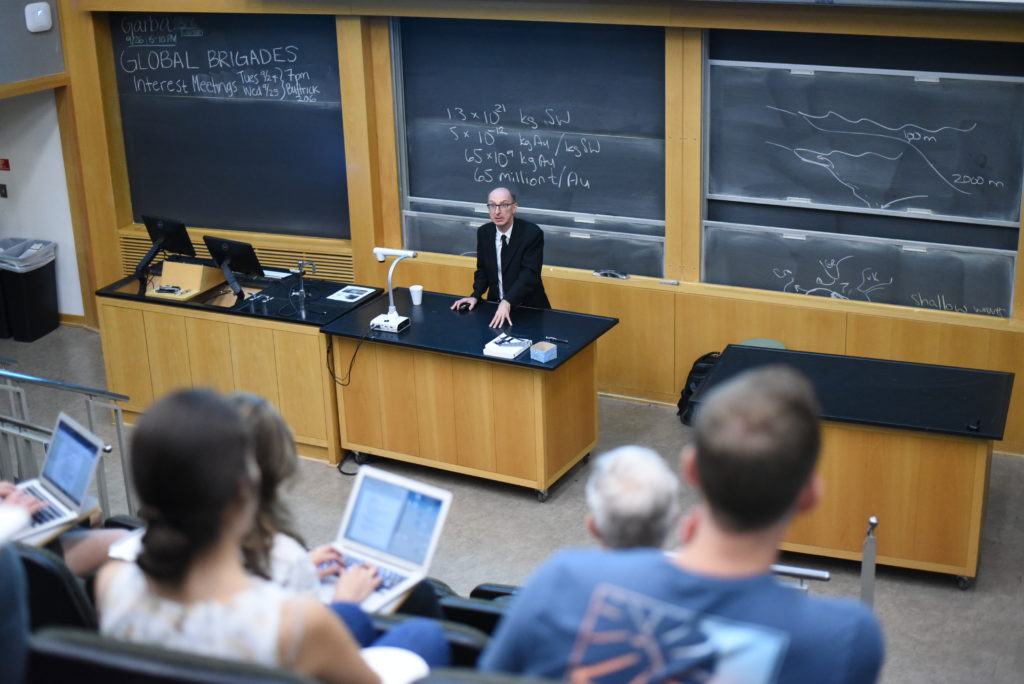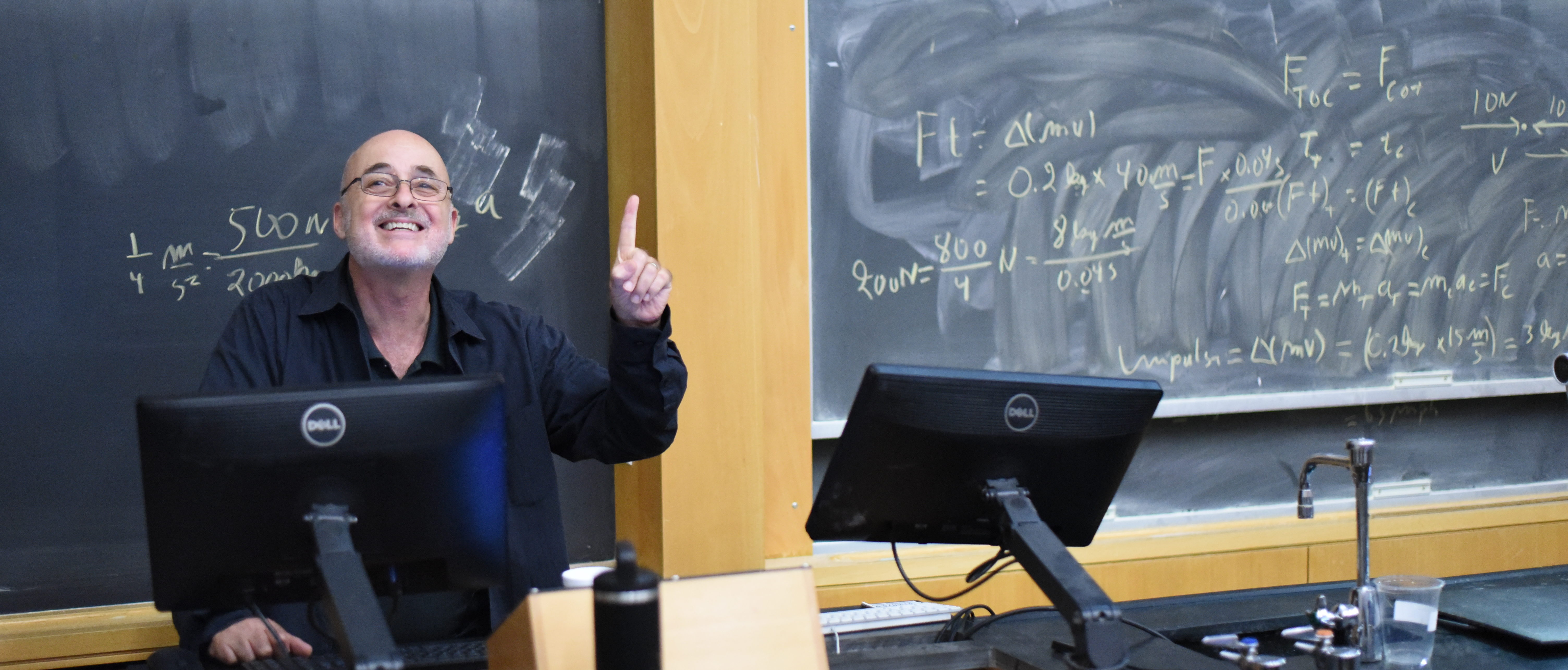Nationally Known Scientists Outline Future of Space Travel at Physics Colloquia
Humans have exploration in our DNA. That was the message of two recent physics colloquia led by nationally known scientist-authors: Les Johnson, a NASA technologist, and David Brin, an astrophysicist. Both spoke to near-capacity audiences in the Stevenson Center Lecture Hall at the end of September.
Johnson, who earned his M.S. in physics at Vanderbilt, has worked at NASA’s Marshall Space Flight Center for 29 years. He is currently Deputy Manager for the Advanced Concepts Office, where he investigates solar sail and nuclear propulsion technologies. His books span both fiction and nonfiction, with his nonfiction focusing on interplanetary settlement and ways to “regreen” Earth.

“I think there’s a restlessness of the human spirit that wants to explore the neighborhood and see what’s out there,” Johnson said at his colloquium.
He shared that his primary professional goal is to complete a step, however small, toward human settlement on another planet. He believes the technologies he researches, along with political cooperation to tackle environmental issues such as space debris, are crucial to achieving that ultimate goal.
Brin earned his B.S. in astronomy at the California Institute of Technology and his Ph.D. in space science at the University of California, San Diego (UCSD). His dissertation, which involved modeling comets and asteroids, still serves as a reference for today’s explorations of our solar system.
This research took Brin in an unexpected direction. Inspired to consider the boundaries of space science, he bypassed a career in the lab or academia to become a futurist and Hugo Award-winning science fiction author. His best-known novels include The Postman (1985), which became a 1997 feature film starring Kevin Costner, and Earth (1990).

In Brin’s colloquium lecture, he proposed that the world is entering “a new barnstorming era”: a period when a few brave, bold individuals make do-or-die investments to break new frontiers of exploration. Like Johnson, he sees human settlement of other planets as a viable (although distant) possibility. Asteroids, he believes, may also be feasible settlement locations, thanks to their captured water and usable metals.
Each lecture was followed by lively question-and-answer sessions, with audiences particularly interested in the scientists’ opinions on priorities for further space exploration. Brin and Johnson shared the belief that, since the U.S. has already visited the Moon, the nation’s resources are better spent focusing on travel to other bodies.
Both also suggested that the seemingly inherent human interest in space exploration is an indication of, and motivation for, the best in us.
As evidenced by recent discoveries and technological developments, Brin said, “There’s good stuff you can get excited about. There’s reason to believe that we’re truly anomalously smart and decent compared to what we could have been.”
View the physics colloquium calendar.

